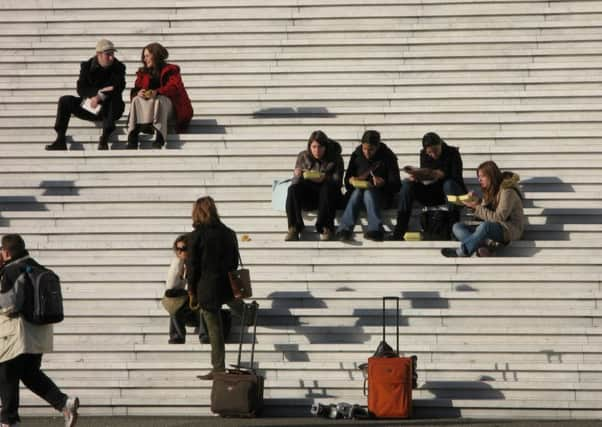We need to create the right culture to support our teenagers through adolescence


The jokes about adolescents revolve around their grouchiness, their unreasonableness, their “all-about-me” attitude, but this is a momentous biological change – no joking matter for the person in the middle of it. Shedding skins, not to mention the clothes they no longer fit, facing the facts of their increased autonomy and their separateness from the family they are becoming independent of, is disruptive and difficult. This process of separation and differentiation is in some ways similar to the process tantruming toddlers go through, exercising their will against that of their parents, often awkwardly and in the most trying circumstances. Put all that into a hormone sea where waves of feeling threaten to overwhelm the young person with absolutely no weather warning. And this is before we begin to consider the impact of external factors like peer group pressure and social media bullying.
There is now biological evidence that adolescents need to sleep late to manage all this new growth. Their biology – including their biological clock – is disrupted. In England, there are pilots in some high schools where the school day begins later, to accommodate this fact. But it is rare, as a society, that we are so accommodating or forgiving. This is a time that many young people fall foul of the law for the first time: if not the laws of the land, then their family and social norms. It is a time when we’re biologically programmed to push the boundaries – so how could that be otherwise? But in fact, as the example above shows, it is not rocket science to put things in place which make this transition period easier for our young people.
Advertisement
Hide AdAdvertisement
Hide AdA recent report from the World Health Organisation shows Scottish 15-year-olds fall behind others in Britain in terms of life satisfaction and other health and wellbeing indicators. As Dr Joanna Inchley, from St Andrews University Children and Adolescent Health Research Unit, says: “Particularly concerning is the increase in school-related stress which may be contributing to poorer mental wellbeing especially among 15-year-old girls. It is essential that we look at ways of providing support to young people to help them navigate the challenges they face during adolescence.”
Place2Be works in four high schools in Glasgow and Edinburgh, offering counselling and therapeutic support to children in the first three years of high school. We also offer support to parents and teaching staff. Our intervention in those years is to provide an acceptable place where it is good to talk about the feelings that young people are beset with. It is vital to make it normal to talk about emotional difficulties, rather than acting them out through self-harm (drinking or cutting for example), or violence or withdrawal, at an early stage. If that message – that culture – is properly embedded, then we can begin to support our adolescents with the understanding that is their due, helping them on to healthy adulthood.
l Jonathan Wood is Place2Be’s national manager for Scotland